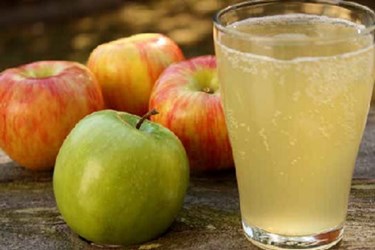Anheuser-Busch Is Making Its Way Into Cider
By Karla Paris

American brewer steps into the niche cider market with new product launch and channel innovation
While cider is still a niche market, the rise in U.S. sales is turning brewers’ heads. In 2013, it exploded into a $172 million industry up $90 million from a year before and is way ahead of the 15% growth of the craft beer segment. According to Impact Databank, which tracks statistics for the wine, beer, and spirits industry, the top 10 cider brands in the U.S. collectively grew by 62 percent in 2012. Another sign of the evolving U.S. cider market is CiderCon, a recent convention of about 250 cider makers in Chicago. The cider comeback is directly tied to the foodie mindset and the explosion in craft beer, and micro distilling. As an added bonus, pure cider is gluten free. Made from apples, water and little else, most ciders are naturally gluten free —the perfect drink for celiac sufferers or those on a gluten free or paleo diet.
Johnny Appleseed Hard Apple Cider, in development since 2011, is the first wholly new brand from Anheuser-Busch (ABinBev) in eight years and arrives at a great time for the fast-growing cider category. More than 750 consumers (men and women 21-34 years old) from the U.S., Canada and the United Kingdom helped to co-design the brand, from taste profile to packaging.
ABinBev operates 12 breweries across the U.S. and is relying on its Baldwinsville brewery to make its hard cider. Until the Johnny Appleseed launch, Baldwinsville was producing several other niche cider products: Stelle Cidre — affiliated with the Belgian brand Stella Artois — Michelob Ultra Cider, and Alexander Keith's Cider. And ABinBev isn’t the only big brewer venturing into cider. MillerCoors, recently launched Smith & Forge Hard Cider, produced in Minnesota. Sam Adams' Angry Orchard cider, launched a few years ago, swiftly rose to be a market leader.
Check out how another brewer is using a checkweigher to ensure proper bottle filling
In addition to bringing packaged beverages home, shoppers are becoming more interested in the at-home draft experience. To address the growing trend of consumers wanting an at-home draft experience ABinBev is putting its might behind Draftmark, a tap system that fits into consumers’ refrigerator shelves. Draftmark uses 1-gallon refills that are driven by bottle-in-bottle technology, which ensures that the beer and air do not come in contact until the beer is poured into a glass, in order to keep the beer fresh for 30 days. Heineken is also responding to customers’ growing demand with the release of their own at-home beer making system in 2013.
With the cider and beer market making significant strides, ABinBev is using innovation to enhance the cider and beer purchasing experience for both the consumer and retailer. The brewer designed a retail lab to allow its customers to gain a deeper understanding of how to manage and merchandise the cider and beer category within their respective channels, including grocery, convenience, and packaged liquor.
